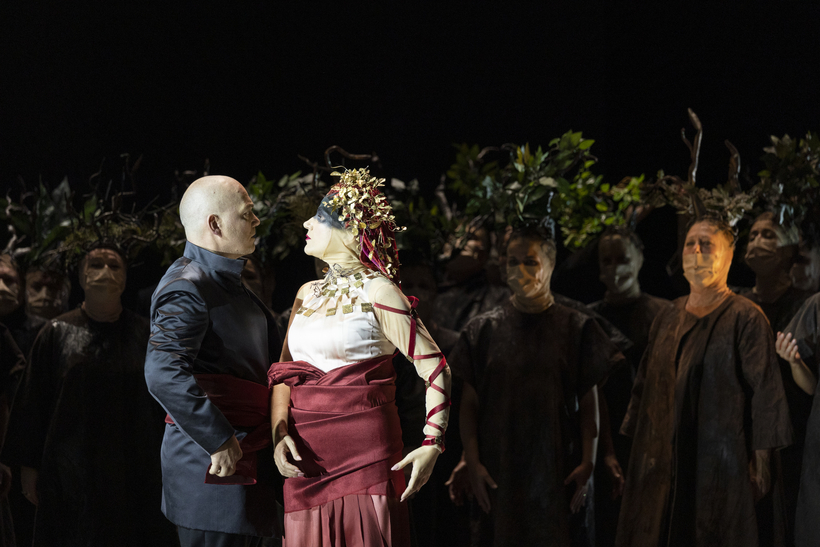“Deconstruction is a rich person’s thing,” the playwright and director Wajdi Mouawad recently told The New York Times. “When everything is fine, you deconstruct. When you can’t afford it—when you yourself are completely fractured—you build.” Having escaped civil-war-torn Lebanon for the safety of Quebec as a boy of 10, Mouawad speaks with more than a talking head’s authority. Not that he’s the only one in his profession to have known trauma and upheaval. But among Europe’s reigning gurus of the theater, his noninterventionist ethos sets him worlds apart.
Even so, it is to Mouawad that the Paris Opera’s incoming director, Alexander Neef, of Germany, has entrusted the inaugural production of his new regime. Mind you, Neef’s choice to open with Georges Enescu’s Œdipe was a leap of faith, too, perhaps an even bolder one. Yet another syrtaki with the lad who killed his dad and married his mother! Can’t you hear the fashionistas moaning, “Do we have to?”
Another syrtaki, indeed. Through Enescu, we rediscover the myth in a subliminally revolutionary new key, ceremonial yet personal, immediate yet timeless. Mouawad makes no pretense of “explaining” the divine plan, or explaining it away. He superimposes no private myth of his own. Rather, he honors the material and the viewers alike, extending a shaman’s knowing hand as he guides us through the maze. The conductor Ingo Metzmacher is Mouawad’s shadow shaman, flying a sure, smooth arc towards an ever-receding horizon, reflexes at the ready for every freak spike and swerve.

Contrary to more familiar accounts, Enescu envisages Oedipus not as the plaything of destiny but as the man who leaves destiny behind. Rather than focus on one moment of blinding truth, the way Stravinsky did a decade before, Enescu unspools the hero’s narrative from his birth to mystic transfiguration. Mouawad takes us back another generation, further deepening the gravitas. In a prologue mimed to voiceover, we witness the sins of Laios, who raped a boy entrusted to his care and then—flouting the prohibition of Apollo—went on to sire offspring of his own: Oedipus, who is cast out at birth. In slaying Laios, Enescu’s Œdipe acts as the unwitting executor of Apollo’s punishment.
In Mouawad’s staging, the horrors unfold in tableaux of numinous austerity. Players in the enormous ensemble pass over the stage less like humankind than nature spirits, unkempt yet graceful, their heads crowned with twigs or grass or budding branches. (The costumes, by Emmanuelle Thomas, are a marvel.) Œdipe walks among them, unadorned, alone in all the world, coming to rest at last where his reflection ripples on black water. (The minimalist scenic design, by Emmanuel Clolus, is a marvel, too.)
Never apologize, never explain: the British baritone Christopher Maltman invests Œdipe with an archaic focus of intent that sets the tone for the entire cast. As the Sphinx, whose music is written in paint-peeling quarter tones, Clémentine Margaine is the hero’s scariest interlocutor. As Mérope, whom Œdipe knows as his mother, Anne-Sofie van Otter is the hardest to read; Ekaterina Gubanova as his wife and birth mother Jocasta, the most touching; and Anne-Sophie Neher, as Antigone, the daughter who shares his exile, the most angelic. As the blind seer Tiresias, the caustic Clive Bayley chills the blood.
Œdipe is available for streaming on medici.tv through January 14
Matthew Gurewitsch writes about opera and classical music for AIR MAIL. He lives in Hawaii

